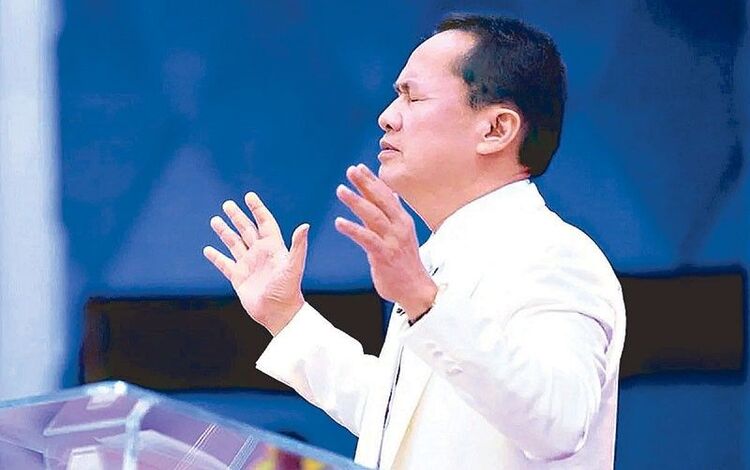The Philippine National Police (PNP) has taken decisive action by revoking the gun permit of Pastor Apollo Quiboloy, leader of the Kingdom of Jesus Christ (KOJC), amidst a cascade of legal troubles both in the Philippines and the United States. This move underscores the authorities’ commitment to upholding the law and ensuring accountability, regardless of one’s social standing or religious affiliation.

PNP spokesperson Police Colonel Jean Fajardo confirmed the revocation, indicating that it was in accordance with the recommendation from the Firearms and Explosives Office (FEO). The decision was grounded in Section 4 (g) of the Comprehensive Firearms and Ammunition Regulation Act, which prohibits individuals facing criminal charges punishable by more than two years from owning firearms.
Quiboloy, who possesses 19 firearms, saw one of his licenses expire in March. His legal entanglements include an arrest order from the Senate for failure to appear at hearings regarding allegations of sexual abuse and human trafficking within his organization. Furthermore, a Davao court has issued a warrant for his arrest, alongside five others, on charges of child abuse. While some of his co-accused have surrendered or been apprehended, Quiboloy remains at large.
The situation extends beyond Philippine borders, as evidenced by arrest warrants unsealed by a California judge, revealing charges related to sex trafficking and conspiracy. Despite the gravity of these accusations, President Ferdinand ‘Bongbong’ Marcos Jr. has assured that legal proceedings will be conducted fairly. He emphasized that external interference, particularly from the United States, should not unduly influence the outcome of Quiboloy’s cases.
The PNP’s decisive action reflects a commitment to upholding justice and ensuring that individuals facing serious allegations are held accountable. By revoking Quiboloy’s gun permit, the authorities are not only enforcing existing laws but also sending a clear message that no one is above the law.
It’s crucial to note that while Quiboloy’s legal battles unfold, the broader issue of accountability within religious organizations and the protection of vulnerable individuals must remain at the forefront of public discourse. The allegations against Quiboloy underscore the importance of robust oversight and accountability mechanisms to safeguard against abuse of power and exploitation, particularly within religious contexts where trust and authority are intertwined.
FLASH: Inaprubahan ng PNP ang rekomendasyon na ipawalang bisa ang license to own and possess firearms o LTOPF ni Pastor Apollo Quiboloy.
— Glen Juego (@glenjuego) April 26, 2024
Ayon kay PNP Spokesperson, Col Jean Fajardo, nakasaad sa batas ang desisyon dahil na rin sa kinakaharap na mga kaso ng Pastor. @dzbb pic.twitter.com/3Lt2ocaA0Z
As the legal proceedings progress, it’s imperative for the justice system to remain impartial and thorough, ensuring that all parties involved receive a fair trial and that justice is served. In doing so, the authorities can uphold the rule of law and demonstrate their commitment to protecting the rights and well-being of all individuals, regardless of their status or affiliation.
